On Christmas Eve, President Ebrahim Raisi paid a heavily-publicized visit to the family of Vartan Aghakhanian, a Christian killed in the Iran-Iraq war. It was described as “unplanned”, though somehow reporters for state media were present.
During the meeting, Raisi told the family and all those there to hear him: “Iranians are always ready to sacrifice their lives to defend their homeland against anybody’s aggression. And it makes no difference whether they are Muslims, Christians or Zoroastrians. Iranians cherish Iran more than anything else...We owe the martyrs a great debt; we owe them the security and the independence of our country. The Iranian nation respects and holds dear anybody who is ready to sacrifice his life for his country.”
During the 1980-1988 war, hundreds of thousands of Iranian men of faiths other than Twelver Shia Islam were sent to the frontlines. Notably in his proclamations, Raisi failed to mention one of the most numerous groups among them: Baha’i citizens of Iran.
An untold number of Baha’is were killed, injured, disabled or taken prisoner in those eight years. Many signed up voluntarily. You can read just a few of their individual stories, based on documents and testimonies collected by IranWire, here. But the Islamic Republic has – as a matter of policy – refused to recognize them as either “martyrs”, the term used for all servicemen who died in the conflict with Iraq, or the survivors as veterans. Contrary to Raisi’s claim, the reason for ignoring their sacrifices is their faith.
In the decade after the 1979 revolution, Baha’is were not so much as allowed to leave Iran. Despite this, the government held and still holds that Baha’is have the duty to serve in the military like other citizens. Just a few months before the Iran-Iraq war broke out, with Baha’is were called on to serve alongside their compatriots, the very same people had been expelled en masse from the army because of their faith.
Three decades after the war, Baha’i war veterans and their families enjoy none of the usual privileges bestowed on ex-servicepeople and the next of kin of Iran-Iraq war dead. At the same time, some Baha’I families have come under such pressure from the Islamic Republic that they are too afraid to commemorate or talk about their own fallen sons. The following excerpt from a letter by the Baha’i veteran Kamaladin Hajipour is a case in point:
“I, Kamaladin Hajipour, son of Ghodrat, am a veteran of the imposed war and I live in Birjand. I was a soldier with the 58th Zolfaghar Division and I was taken prisoner by the Iraqis after serving 27 months as a soldier.
“On September 4, 1990, I proudly returned to the bosom of my motherland of Iran after 27 months of captivity. From the very first moment of my return I tried to stand on my own two feet...and to work assiduously so that I would not be a burden on others’ shoulders. Nevertheless, when I applied for the loan given to all former prisoners of war, I received nothing, with excuses such as ‘We have no budget now’ or ‘Go, and we’ll let you know’.
“Throughout this time, when every now and then I needed a letter [of recommendation] to benefit from an opportunity and went to the Foundation for Martyrs and Veterans’ Affairs, I came back empty-handed.
“Sometimes I feel ashamed in front of my family, although they have never blamed me. But I myself am embarrassed and despondent, because I am 55, and suffer from problems resulting from the time of my captivity, and my family have to suffer its consequences as well.
“I received a message on my mobile phone to go and get my Gold Insurance card [a medical insurance card that allows the holder to benefit from substantial discounts]. I went to the Foundation but there was no card. I asked why, and I was told that my case had been blocked by the security department. When I went to the security department, a Mr. Gholam Hossein Manjgani told me: ‘To resolve your problem, you have no option but to state you have renounced [the Baha’i faith] – and publish your picture in the newspaper as well!’
“Eventually, after many follow-ups with the Foundation, I received my Gold Insurance card. Around two months later I went to Mr. Kadkhoda at the Foundation’s office for medical reasons. He told me my case had been blocked and sent me to the security department. I went to Mr. Khalili, the head of security, and he told me in a very low voice so that others would not hear: ‘Why do you bother us so? You will not receive any services until you announce that you have recanted [Baha’ism].’ And of course, he did what he said he would do.”
No Promotion for Baha’i Soldiers
Today, during their military service, Baha’is soldiers are denied promotion up the ranks regardless of talent and years served. The following document regarding a Baha’i citizen named Babak Baeini, dated February 25, 1996, states:
“Regarding: The promotion of Babak Baeini, son of Reza, to the rank of Second Lieutenant... The aforementioned promotion is deemed void [as stipulated] in a Directive issued under number 1390, because of the individual’s adherence to the Baha’i sect. Please instruct that he is to serve like any other soldier, and inform the named individual that he must complete his army duty as a soldier and until the end of his service will strictly be prevented from being granted any [promotion in] rank.”
During military service Baha’isare also banned from performing certain services such as working in the kitchen, office duties such as secretarial work and typing, message-carrying and driving. The first day that a Baha’i citizen registers for military service, he must specify his religion on the registration form. If he does so honestly, from then until he completes his service he will under surveillance by the army’s intelligence corps, as the following directive issued by the Islamic Republic Army Ground Forces (NEZAJA)’s personnel department shows.
“Please ensure that the following provisions concerning the military service of members of the perverse Baha'i sect are enforced exactly as indicated.
“1. Commanders of training centers shall report the status of individual members of the deviant Baha’i sect to the political and ideological section of the relevant unit’s Intelligence Security Agency.
“2. The Intelligence and Security Agency shall, while observing the necessary precautions, proceed in accordance with the policies of SAHNAJA [the Iranian armed forces’ Intelligence and Security Agency].
“3. The Political and Ideological [section of the Intelligence and Security Agency] shall in turn make the necessary assessments with a view to taking action aimed at guiding and reforming them.
“4. Subsequent to the transferral of such individuals from training centers, their security and other records shall be forwarded to [illegible] and [illegible]... their service post by the Political and Ideological section of the [Intelligence and Security Agency].
“5. Commanders and heads of units shall seek guidance from the Intelligence and Security Agency and [illegible] of the units shall proceed with their placement in various positions.”
The above documents leave little doubt that the statement made by President Ebrahim Raisi was pure misdirection. Iranian citizens of all faiths are not valued for their military service – on the contrary, thousands are left in the cold and subjected to humiliating restrictions even while putting their lives on the line, because of their beliefs.
According to a July 2019 report by Javaid Rehman, the UN Special Rapporteur on the Situation of Human Rights in the Islamic Republic, there are an estimated 350,000 Baha’is living in Iran today. Though they face constant harassment and are denied their most basic rights, the Islamic Republic still expects them to fight for their country – then refuses to acknowledge it.
Related Coverage:
UN General Assembly Calls on Iran to Eliminate Religious Discrimination
Christian Converts Jailed in Bushehr
"Iran Without Hate" Campaign for Baha'is Attracts Widespread Support
Jailed Christian Converts: The Regime is Destroying Our Churches
Activists Deconstruct Baha'i "Errant Sect" Propaganda on Clubhouse
Dr. Faramarz Samandari: The Baha’i Surgeon Who Was Executed for His Faith
The Islamic Republic's Intolerance to Christian Converts, Explained
More Arrests of Iranian Baha'is as Regime 'Targets Young Families'
40 Years of Discrimination Against Christians, Jewish People and Zoroastrians
visit the accountability section
In this section of Iran Wire, you can contact the officials and launch your campaign for various problems




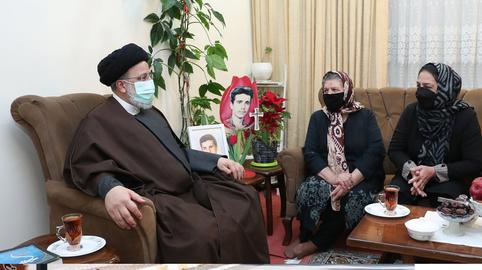


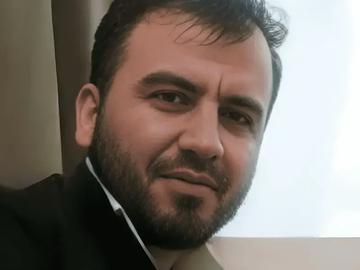





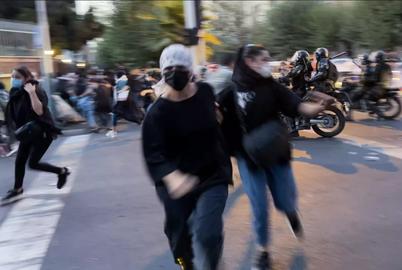
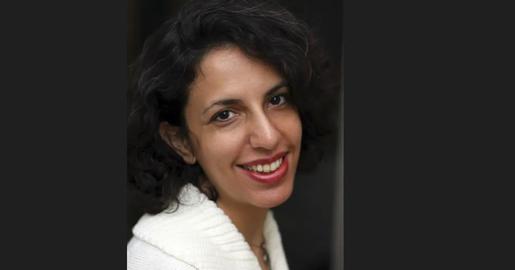
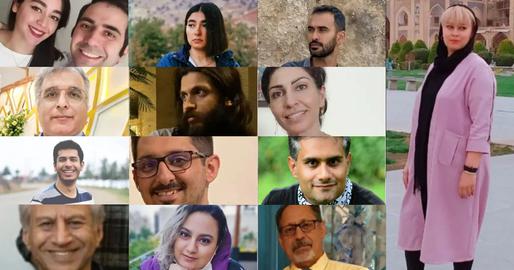

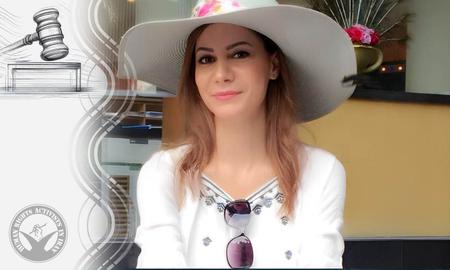


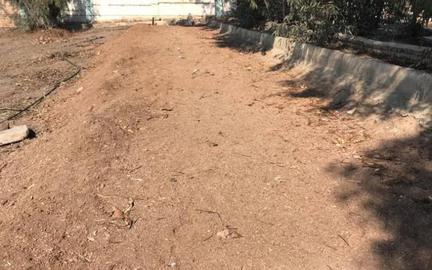

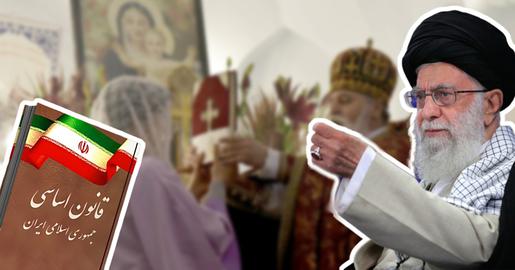

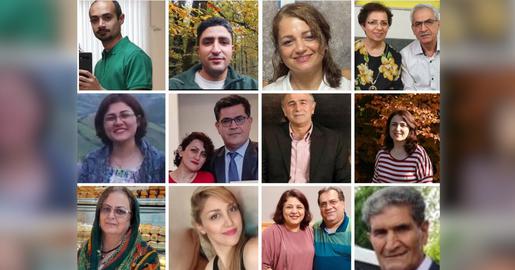
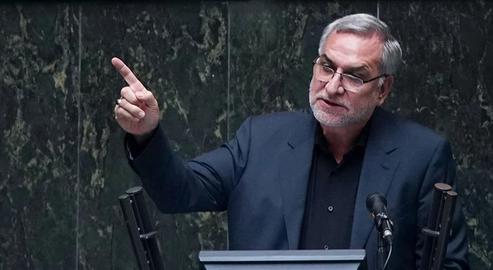
comments